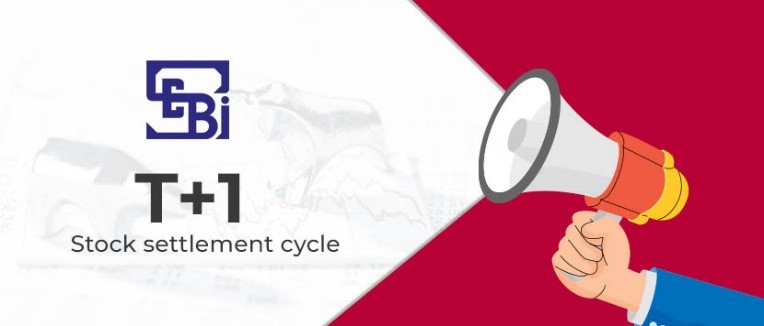Description

Disclaimer: Copyright infringement not intended.
Context:
- After China, India will become the second country in the world to start the ‘trade-plus-one’ (T+1) settlement cycle in top-listed securities from January 27.
- This is for bringing operational efficiency, faster fund remittances, share delivery, and ease for stock market participants.
Trade Settlement:
- Trade settlement is a two-way process wherein the purchased securities are delivered to the buyer, and the seller receives cash.
- As one buys or sells financial securities, the actual transfer of ownership occurs on the settlement date.
What Is T+1 (T+2, T+3)?
- T+1 (T+2, T+3) are abbreviations that refer to the settlement date of security transactions.
- The "T" stands for transaction date, which is the day the transaction takes place.
- The numbers 1, 2, or 3 denote how many days after the transaction date the settlement—or the transfer of money and security ownership—takes place.
- For determining the T+1 (T+2, T+3) settlement date, the only days counted are those on which the stock market is open.
Decoding T+1 settlement plan
- The T+1 settlement cycle means that trade-related settlements must be done within a day, or 24 hours, of the completion of a transaction.
- For example, under T+1, if a customer bought shares on Wednesday, they would be credited to the customer’s demat account on Thursday. This is different from T+2, where they will be settled on Friday.
- As many as 25 large-cap and top mid-cap stocks, including Nifty and Sensex stocks, will come under the T+1 settlement.
- Until 2001, stock markets had a weekly settlement system. The markets then moved to a rolling settlement system of T+3, and then to T+2 in 2003. T+1 is being implemented despite opposition from foreign investors. The United States, United Kingdom and Eurozone markets are yet to move to the T+1 system.
What are the benefits of T+1?
Boost to Digital Journey: Seamless transactions
- In the T+1 format, if an investor sells a share, she will get the money within a day, and the buyer will get the shares in her demat account also within a day.
- The shorter trade settlement cycle that is set to be implemented augurs well for the Indian equity markets from a liquidity perspective, and it shows how well we have grown on the digital journey to ensure seamless settlements within 24 hours.
Operational Efficiency
- This will also help in getting the funds in the bank account within 24 hours of the sale of shares. The shift will boost operational efficiency as the rolling of funds and stocks will be faster.
Makes Markets Safer
- A T+1 settlement cycle frees up the capital required to collateralize that risk.
- A shortened settlement cycle also reduces the number of outstanding unsettled trades at any point of time, and thus decreases the unsettled exposure to Clearing Corporation by 50 percent.
- The narrower the settlement cycle, the narrower the time window for a counterparty insolvency/ bankruptcy to impact the settlement of a trade.
Note: If bankruptcy is filed, settlements are impacted. A shorter settlement cycle will reduce this impact.
- Further, the capital blocked in the system will get proportionately reduced with the number of outstanding unsettled trades at any point in time.
- Systemic risk depends on the number of outstanding trades and concentration of risk and becomes critical when this magnitude of outstanding transactions increases. Thus, in this era of increasing trade volumes, a shortened settlement cycle will help in reducing systemic risk.
|
SYSTEMIC RISK
Systemic risk refers to the risk of a breakdown of an entire system rather than simply the failure of individual parts. In a financial context, it denotes the risk of a cascading failure in the financial sector, caused by linkages within the financial system, resulting in a severe economic downturn.
|
Why are foreign investors opposed?
- Foreign investors were against SEBI’s T+1 proposal, and had written to the regulator and the Finance Ministry about the operational issues faced by them, as they operate from different geographies.
- Among the issues raised by them were time zone difference, information flow process, and foreign exchange problems.
Note: In 2020, SEBI had deferred the plan to halve the trade settlement cycle to one day (T+1) following opposition from foreign investors.
Read about SEBI: https://www.iasgyan.in/daily-current-affairs/sebi
https://indianexpress.com/article/explained/explained-economics/t1-settlement-cycle-comes-into-effect-on-january-27-8406168/













